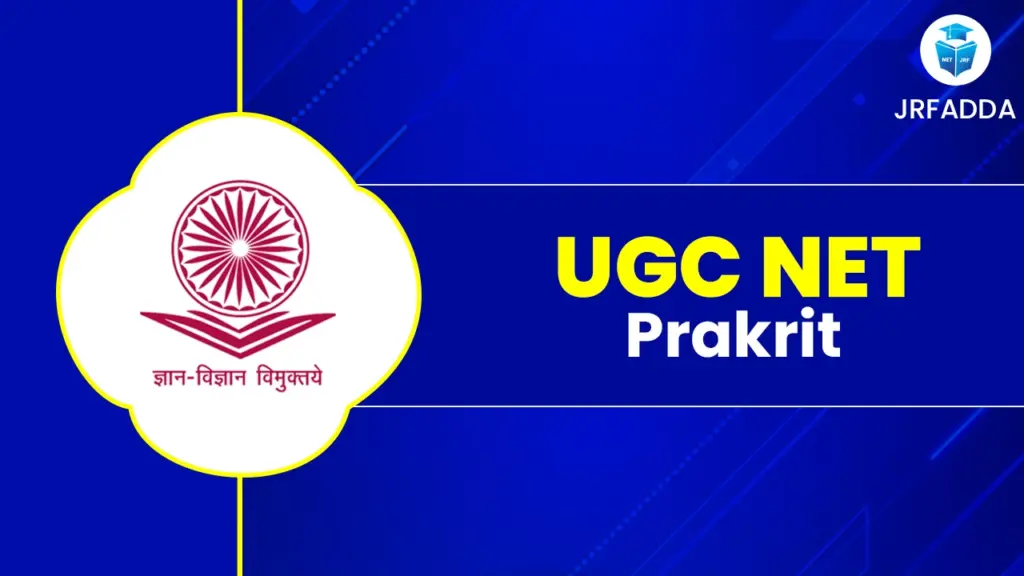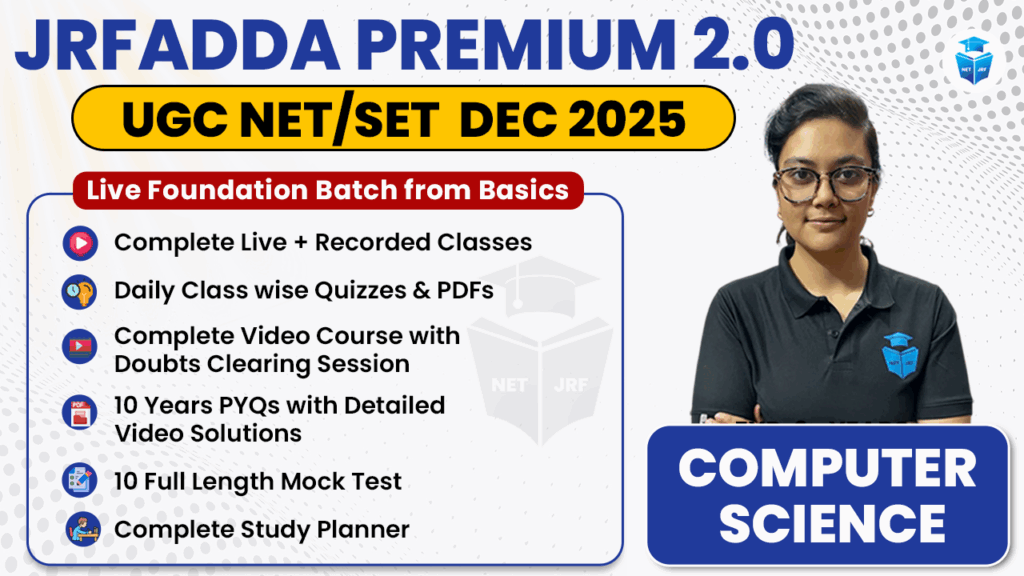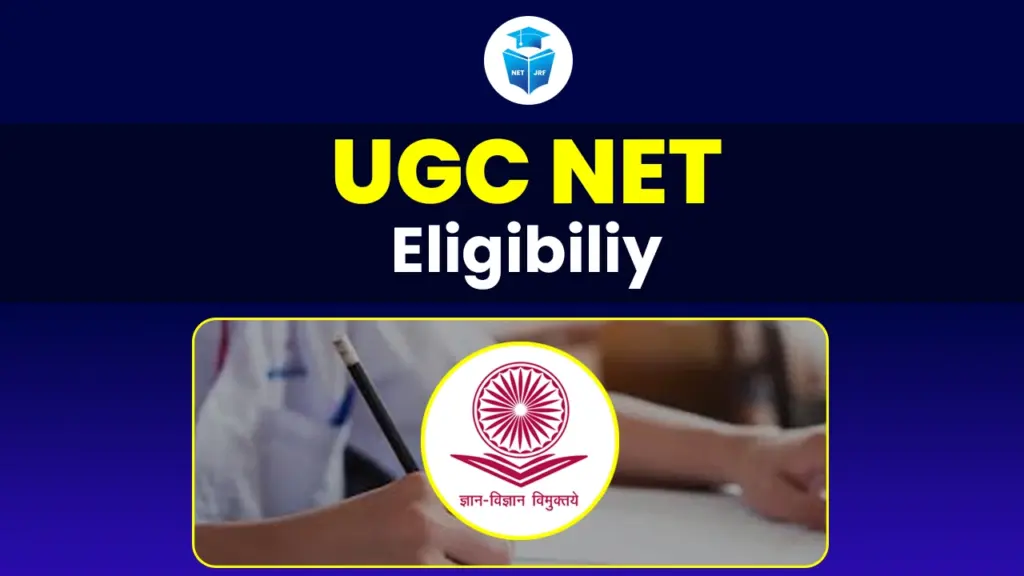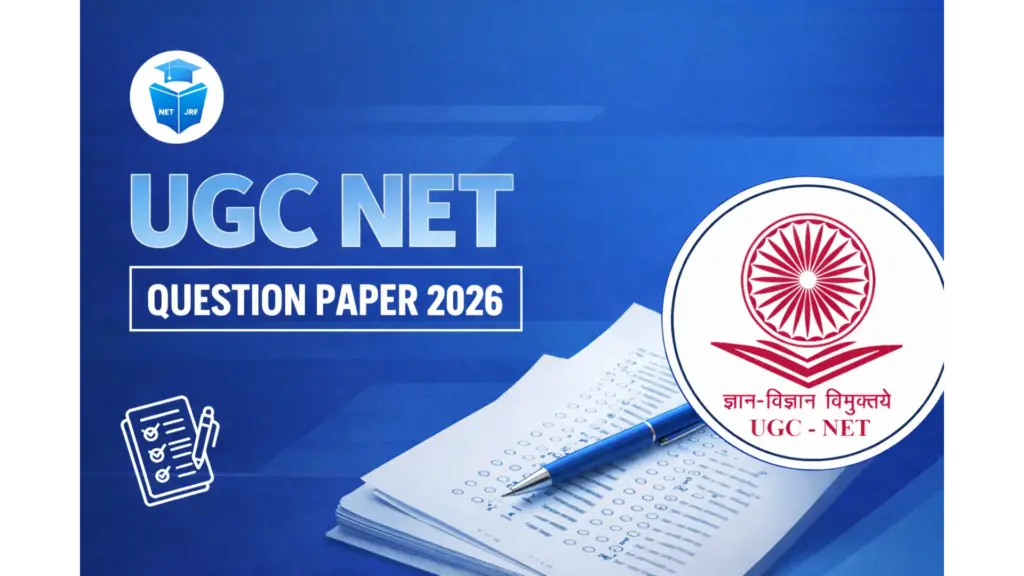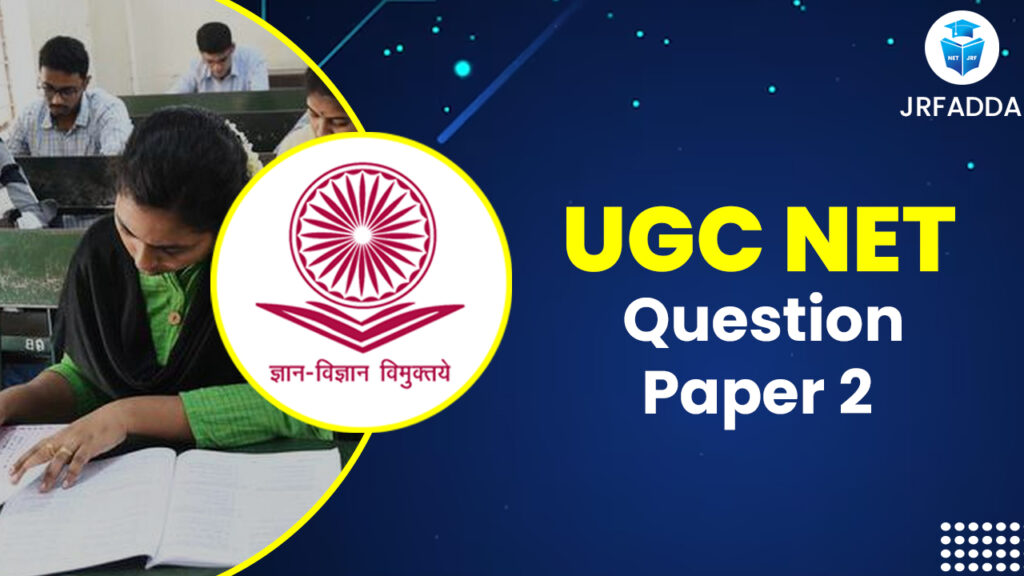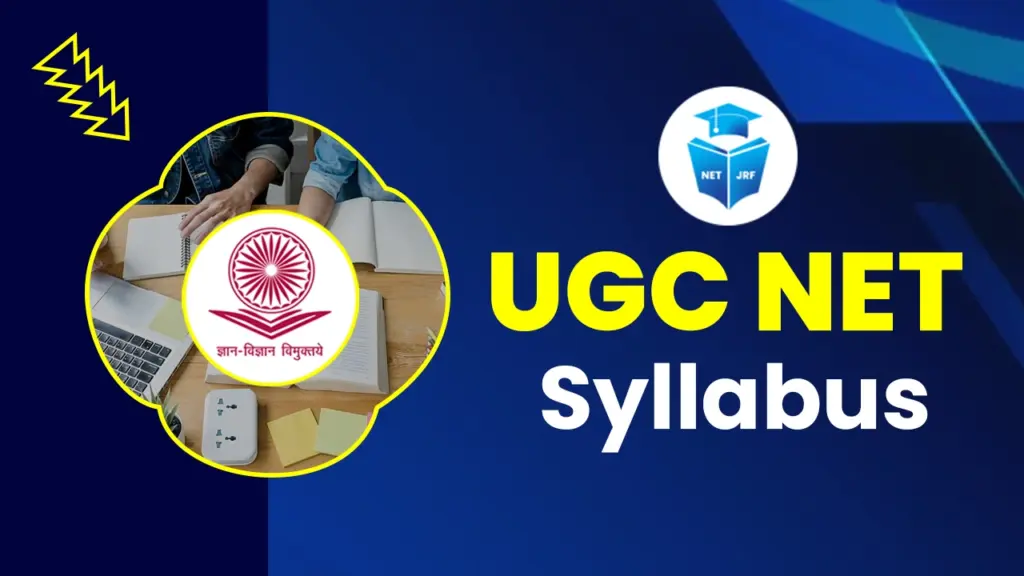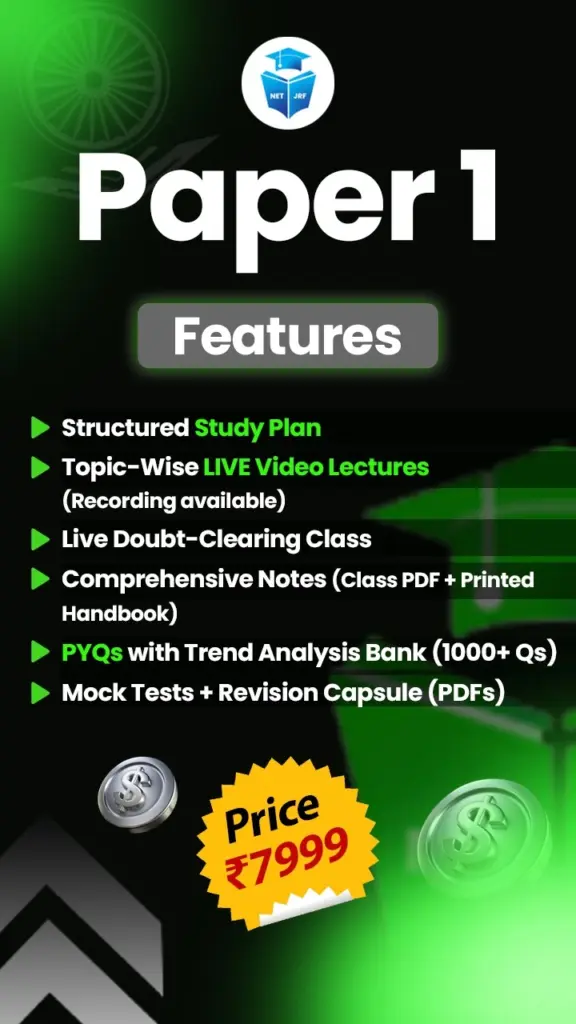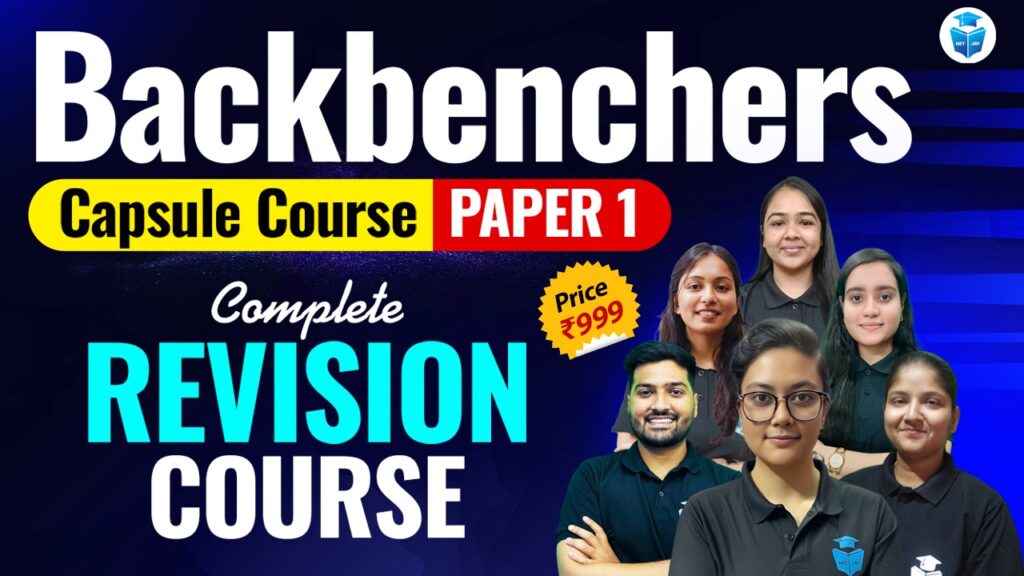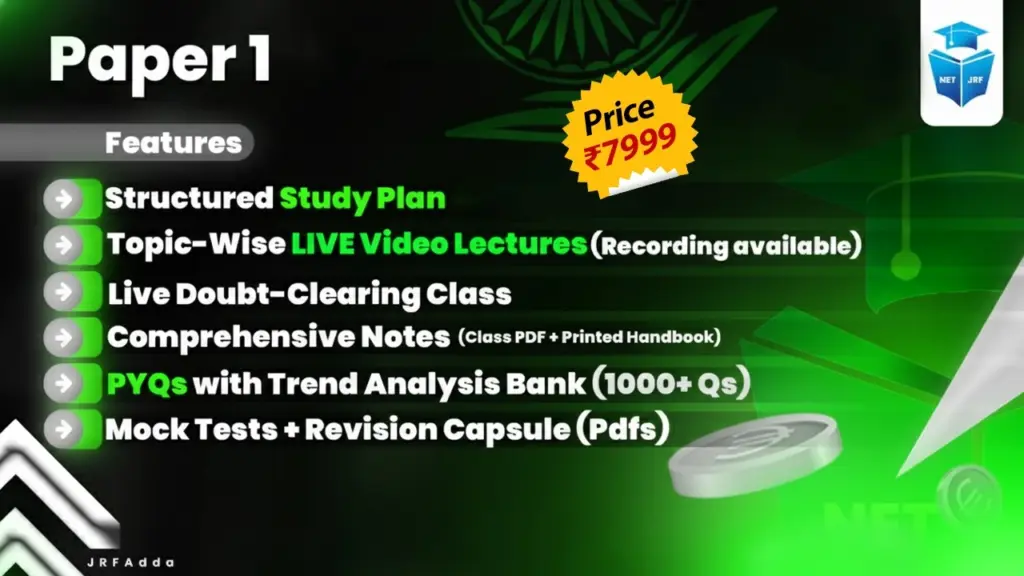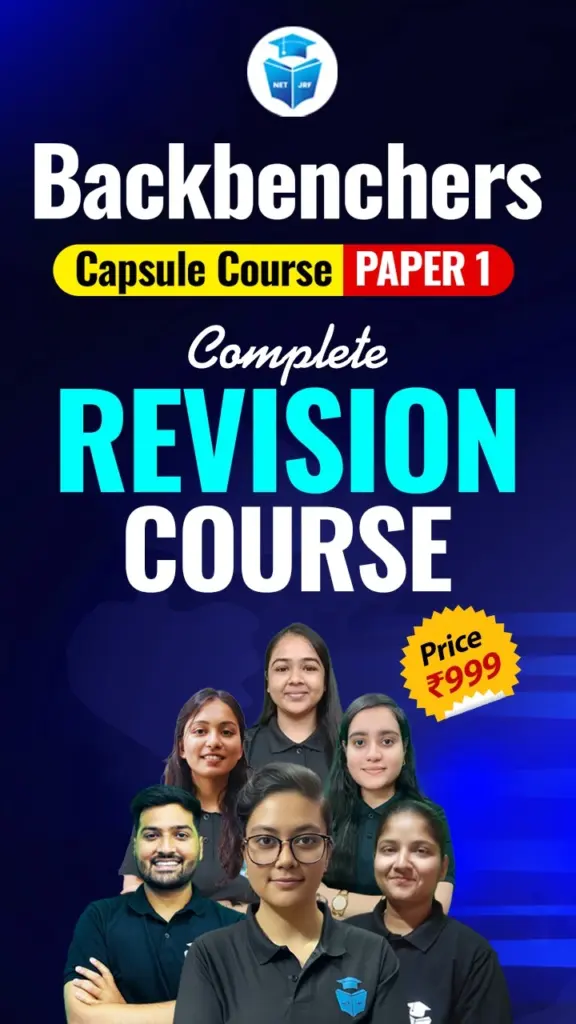The UGC NET Prakrit 2025 exam offers a prestigious opportunity for candidates passionate about Prakrit language and classical Indian literature to secure positions as Assistant Professors or Junior Research Fellows (JRF). Conducted by the National Testing Agency (NTA), the exam evaluates teaching aptitude and subject-specific knowledge in the ancient Indo-Aryan language of Prakrit.
In this article, you’ll find complete details about eligibility, syllabus, exam pattern, preparation tips, career options, and a detailed analysis of the June 2025 paper for both Paper 1 and Paper 2.
Also Read: UGC NET Eligibility 2025
What is UGC NET Prakrit 2025?
UGC NET Prakrit 2025 is a group of ancient Indian languages that were spoken and used extensively in classical literature, particularly in Jain and Buddhist literature. UGC NET Prakrit examination tests the knowledge of a candidate in Prakrit language, literature, grammar, philology, and its historical and philosophical background.
Also Read: UGC NET Previous Question Papers
UGC NET Prakrit June 2025 Exam Analysis – Shift 1 (Paper 1 & 2)
The UGC NET Prakrit 2025 Shift 1 exam held in June was rated Easy to Moderate in overall difficulty.
Paper 1 (General Aptitude) featured questions on Data Interpretation (bar chart and ratio), Teaching Aptitude (fallacies, learner-centered approach), Logical Reasoning (Square of Opposition, Logical Equivalence), a moderate-level Reading Comprehension passage, and an analytical puzzle based on a number sequence (2561925). Students noted the importance of logical clarity and time management.
Paper 2 (Prakrit) was moderately challenging, focusing on Grammar (sandhi, samāsa, verb forms, case endings), Philology (phonetic laws, metathesis), and canonical literature. Statement-based and assertion-reason questions were more prevalent, with several questions matching previous year trends.
UGC NET UGC NET Prakrit Eligibility Criteria 2025
UGC NET Prakrit eligibility conditions are generally education-based, age restrictions, and subject-based. These conditions ensure the academic standard of the exam as well as the opportunities to appropriate candidates in various categories. Such candidates fulfilling these eligibility conditions may apply with confidence for the UGC NET exam in Prakrit, the beginning of a career as an Assistant Professor or Junior Research Fellowship in the relevant subject. Clear comprehension of these conditions is required to prevent rejection of the application and to organize the test strategy.
UGC NET Educational Qualification 2025
- General/Unreserved/General-EWS Candidates: Must have secured at least 55% marks (without rounding off) in a Master’s degree or an equivalent examination from UGC-approved institutions/universities.
- OBC-NCL/SC/ST/PwD/Third Gender Candidates: Must have secured minimum 50% marks (without rounding off) in a Master’s degree or an equivalent test.
Final Year Candidates
- Final year candidates pursuing their Master’s degree or equivalent course or final year candidates who have cleared their Master’s degree (final year) qualifying examination and whose result is yet to be declared can also apply.
UGC NET Age Limit 2025
- Junior Research Fellowship (JRF): Maximum age limit is 30 years.
- Relaxation of Age: Maximum 5 years for OBC-NCL, SC, ST, PwD, and women candidates. Further relaxations can be granted for research experience holders, LLM degree holders, and ex-servicemen, provided with some conditions.
- Assistant Professor: No age limit.
Subject Selection
- Candidates should select Prakrit (Subject Code: 91) for Paper II if they have completed or are pursuing a Master’s degree in Prakrit or a closely related subject.
Also Read: UGC NET Exam Pattern 2025
UGC NET Prakrit Exam Pattern 2025
The UGC NET Prakrit Exam Pattern 2025 is structured to assess candidates’ teaching aptitude and subject-specific knowledge in Prakrit. Here’s a detailed breakdown:
| Paper | Subject | Number of Questions | Marks | Duration |
| Paper I | Teaching & Research Aptitude (General) | 50 | 100 | |
| Paper II | Prakrit (Subject-Specific) | 100 | 200 | |
| Total | 150 | 300 | 3 hours (180 minutes) |
UGC NET Prakrit Marking Scheme 2025
This same marking scheme is applied uniformly on Paper I (General Paper) and Paper II (Subject-Specific Paper, for example, Prakrit). 2 marks are awarded for each correct response, and marks are not lost for a wrong or unattempted response. This is done to encourage candidates to attempt all the questions without fear of losing marks for a wrong response.
| Paper | Number of Questions | Marks per Question | Total Marks |
| Paper I | 50 | 2 | 100 |
| Paper II | 100 | 2 | 200 |
| Total | 150 | — | 300 |
UGC NET Prakrit Minimum Qualifying Marks 2025
The UGC NET Prakrit Minimum Qualifying Marks 2025 get established through category-based evaluation which students need to attain for exam success. The minimum passing marks for UGC NET are different from the required subject-wise cut-off scores for JRF or Assistant Professor positions.
| Category | Minimum Qualifying Marks | Percentage |
| General (Unreserved) | 120 out of 300 | 40% |
| OBC (Non-Creamy Layer)/SC/ST/PwD/Transgender | 105 out of 300 | 35% |
Also Read: UGC NET Syllabus 2025
UGC NET Prakrit Syllabus 2025
The UGC NET Prakrit Syllabus 2025 structure evaluates candidates according to their comprehensive understanding of Prakrit language together with related literature studies. The examination syllabus comprises multiple units which examine separate elements of Prakrit learning. Below is a complete overview of the syllabus structure.
UGC NET Prakrit Syllabus 2025- Unit Wise
The UGC NET Prakrit syllabus is designed to test the comprehensive knowledge of the candidates in Prakrit language, literature, grammar, and cultural heritage. Following is the long unit-wise syllabus to allow the aspirants to prepare effectively for the exam:
| Unit | Topics Covered |
| Unit I: History of the Prakrit Language | Origin and development of Prakrit languages Classification and characteristics of various Prakrits Historical significance and evolution of Prakrit |
| Unit II: Prakrit Canons and Commentary Literature | Study of canonical texts in Prakrit Analysis of commentaries and their contributions to Prakrit literature |
| Unit III: History of Prakrit Kāvya Literature | Evolution of poetic forms in Prakrit Major works and authors in Prakrit poetry |
| Unit IV: Prakrit in Ancient Dramatic Literature and Saṭṭaka Literature | Role of Prakrit in ancient Indian drama Study of Saṭṭaka literature and its significance |
| Unit V: Prakrit Inscriptional Literature | Analysis of inscriptions in Prakrit Understanding the historical context through Prakrit inscriptions |
| Unit VI: Prakrit Scientific Literature | Study of Prakrit texts on astrology and mathematics Examination of Prakrit grammarians and grammatical treatises Understanding metrics and features of metres in Prakrit and Apabhraṃśa |
| Unit VII: Prakrit Grammar | General rules of nouns, adjectives, pronouns, verbs, and indeclinables Case, case-endings, sandhi, and samāsa in Prakrit |
| Unit VIII: Prakrit Philology | Phonetic changes in vowels and consonants Phonetic behaviors like assimilation, dissimilation, metathesis, and elision Study of anusvāra, anunāsika, visarga, and āgama |
| Unit IX: Study of Original Prakrit Texts | In-depth analysis of original Prakrit texts Understanding the literary and linguistic aspects of these texts |
UGC NET Prakrit 2025 Syllabus PDF Download
Preparation for UGC NET Prakrit exam demands that you possess clear knowledge of the syllabus so that you are able to prepare accordingly. To the advantage of the aspirants, we have given the entire UGC NET Prakrit syllabus 2025 in PDF format — easily downloadable and available for offline study.
| Language | Download Link |
| English | Download UGC NET Prakrit Syllabus 2025 (English) |
| हिंदी (Hindi) | यूजीसी नेट प्राकृत सिलेबस 2025 डाउनलोड करें (हिंदी) |
Download UGC NET Full Official Syllabus PDF
UGC NET Prakrit Question Paper 2024
UGC NET Prakrit Question Paper 2024 is essential for the candidates who are preparing for the UGC NET examination in Prakrit literature and language. Previous year question papers assist the aspirants in becoming familiar with the exam pattern, type of questions, and the level of difficulty.
| Exam Name | Shift | Paper | Download PDF |
| UGC NET June 2024 | Shift 1 | Paper 2 | Download Link |
UGC NET Prakrit Previous Year Question Papers
It can be a lot simpler to prepare for the UGC NET Prakrit exam using previous year question papers. Question papers provide us with the most useful information about the exam pattern, the nature of questions asked, and important topics tested thoroughly. Practicing on old papers is one of the best ways to improve your preparation and confidence level.
| Exam Name | Year | Download PDF |
| UGC NET Prakrit | 2023 | Download Link |
| UGC NET Prakrit | 2022 | Download Link |
| UGC NET Prakrit | 2021 | Download Link |
| UGC NET Prakrit | 2020 | Download Link |
| UGC NET Prakrit | 2018 | Download Link |
Also Read: UGC NET Preparation Tips 2025
Career Scope After Qualifying UGC NET Prakrit
Clearing the UGC NET Prakrit exam makes you eligible for multiple high-paying professional posts in teaching and research. The exam qualifies you for lectureship and Junior Research Fellowship (JRF) in Prakrit language and literature, leading to a bright future.
Lectureship / Assistant Professor
After clearing UGC NET Prakrit, you can obtain assistant professor jobs in Indian universities and colleges. College and university teaching provide you with the chance to teach your knowledge on Prakrit language, literature, and culture to students.
Junior Research Fellowship (JRF)
JRF qualification from UGC NET enables you to carry out full-time research on Prakrit studies with fellowship. You can undertake PhD courses, publish original research work, and carry out government-sponsored projects and sponsored projects by academic institutions.
Research Opportunities
As a NET-holding individual, you can seek various research jobs in ancient Indian language, literature, linguistics, and cultural research. Advanced study fellowships and grants are generally conferred by research establishments, language academies, and universities.
Translation and Publication
Prakrit fluency offers scope for translation work of ancient texts, manuscripts, and inscriptions. You can work with publishing houses, cultural centers, or cyber libraries to translate and publish research studies.
Preservation of Culture and Archival Practice
Organizations involved in the conservation of ancient manuscripts, inscriptions, and literary works appreciate Prakrit experts. You can be involved in archiving, cataloging, and restoration of valuable historical texts. Public Sector and Government Jobs Some of the public institutions and government ministries dealing with culture activities, archaeology, and heritage management employ NET-qualified persons in specialist positions working with ancient literature and languages.
Also Read: Career Options After UGC NET June 2025
UGC NET Prakrit Preparation Tips 2025
Studying for UGC NET Prakrit requires a bit of focusing and planning because the subject is very specialized. To help you get through it, here are some preparation tips to help you with UGC NET Prakrit in 2025:
- Know the Syllabus: Understand all topics like history, grammar, literature, and inscriptions clearly.
- Get Quality Study Materials: Use standard books, research papers, and previous year papers.
- Make a Study Plan: Allocate time for each topic, focusing more on difficult areas.
- Master Grammar: Practice nouns, verbs, sandhi, samāsa, and phonetics regularly.
- Solve Past Papers: Improve exam familiarity and time management.
- Revise Often: Make notes and review them regularly.
- Follow Official Updates: Stay informed about exam dates and notifications.
- Join Groups or Coaching: For extra guidance and motivation.
- Practice Time Management: Simulate exam conditions while practicing.
- Stay Healthy: Keep a balanced routine for better focus and energy.
Conclusion
The UGC NET Prakrit 2025 exam will be a precious opportunity for those who are passionate about ancient Indian languages and literature in order to set up an academic and research career. In practicing well along with proper strategizing along with full knowledge of the syllabus and regular practice, a person can clear the targeted exam and maybe jobs in teaching, research fellowships, and cultural conservation working doors. It is recommended to keep an eye on the official notification, practice effective time management, and work on language and literature knowledge to excel in this prestigious examination.
UGC NET Prakrit 2025 FAQs
What are the requirements to be eligible for UGC NET Prakrit 2025?
Candidates must have a Master’s degree in Prakrit or a related field with at least 55% of the possible points (or 50% for reserved categories). Students in their final year may also apply.
Does UGC NET Prakrit have an age restriction?
Yes, with exceptions for reserved categories, the maximum age limit for Junior Research Fellowships (JRFs) is 30 years old. Eligibility to be an Assistant Professor has no upper age limit.
What is the exam pattern of UGC NET Prakrit 2025?
The test consists of two papers: Paper I has 50 questions about research and teaching techniques, and Paper II has 100 questions about topics unique to Prakrit. There are no deductions, each question is worth two points.
How can I prepare effectively for UGC NET Prakrit?
Understand the entire syllabus, collect common study materials, previous years’ practice papers, focus on grammar and literature, and revise often.
For those who pass the UGC NET Prakrit, what types of jobs are available?
Those who fulfill the requirements can apply for jobs as cultural preservation specialists, translators and publishers, research projects, assistant professors or lecturers, and Junior Research Fellowships (JRF).

